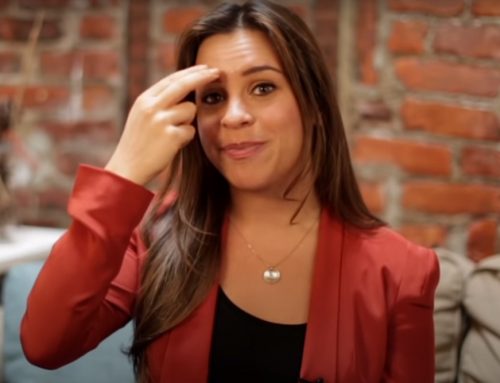with Dr. Kathleen Regan, ND
Heart disease is one of the western world’s most prevalent diseases. The Heart and Stroke Foundation rates it as the number one cause of death in Canada. If you look on the Heart and Stroke Website you will see listed the following preventative strategies for heart disease:
- Maintain a healthy weight
- Consult a dietician for help with creating a balanced diet, monitoring fat intake, increasing complex carbohydrates such as fruits and vegetables, reducing alcohol consumption
- Quit smoking or maintain a smoke-free environment
- Remain Physically Active
- Decrease stress
All great suggestions that we give out as naturopathic doctors every day… lifestyle, lifestyle, lifestyle! But, our patients protest, ‘it is so hard to change!’ WHY?
One of the BIG reason we have difficulty maintaining lifestyle is stress. Our bad habits make us feel really, really good – for a really short period of time. Yet, many of our global authorities on heart health have a hard time directly connecting emotions with heart health – or at least they have a hard time talking about it. Yet in ancient times, this connection was well understood.
According to Traditional Chinese Medicine (TCM) one of the biggest blocks to mental and spiritual wholeness is that between the heart (feeling) and the mind (thought). Somewhere along the way, our western minds came to believe that feelings and thoughts are separate. While in eastern medicine, the relationship is so important that a block or separation between heart and mind is considered a precursor to disease.
In TCM the ‘Heart-Mind’ is the residence of memory, thinking, consciousness, mental activity, emotions, sleep and is said to be the home of the spirit or, ‘the Shen’. A divided Heart-Mind has a serious impact on the Shen. A disconnect between the heart and the mind (between emotions and thoughts) manifests in poor memory, attention deficits, insomnia, depression, anxiety and….stress. And in turn, these ongoing ‘Shen’ disturbances – injure the heart.
In life it is hard to change our everyday stresses, yet we can change how we respond. What is one factor that strengthens our natural defences against stress?
LOVE.
In the Hindu and Buddhist tradition we have the heart ‘chakra’. The word ‘chakra’ refers to centers of ‘bio-energetic’ activity in the human body. The Heart Chakra in Sanskrit is called Anahata, and translates to ‘un-struck, un-hurt’. It is thought to exist at heart level between the two breasts. Traditionally the purpose of Anahata was to love and to balance, to love and to be loved. An imbalance in the capacity to love, can throw our heart out of balance and affect us on a mental and physical level. According to Anodea Judith, in her book, Eastern Body, Western Mind’ :
- A balanced heart expresses: compassion, love (for self and other), empathy, altruism, peace and healthy immune function.
- A deficient heart exhibits: withdrawal, isolation, loneliness, fear of intimacy, criticism, judgment, depression, lack of empathy and narcissism.
- An excess heart manifests: codependency, poor boundaries, demanding behavior, jealousy and sacrificial behavior.
Imbalance in the heart chakra is connected to physical symptoms in the chest such as shortness of breath, asthma, sunken chest, circulation problems, immune system malfunction, tension between the shoulder blades and pain in the chest. In this eastern tradition, love is considered to be the healing energy of the heart. So when we are improving our diets, decreasing our toxic exposure and increasing our fitness in the name of heart health we may also want to consider exercising our capacity to love.
Try this exercise to begin opening your hearts. Then ask your self the following questions:
Do I give the same amount of time and energy to others that I give to myself?
Am I able to express my emotions and how I feel?
Have I experienced events in the past that make it difficult to feel emotion deeply?
Do I feel passionate about life or do I feel numb?
Am I able to forgive myself and others?
Do I consider myself worthy of love?
How do I express love to myself and others?
Do I believe that there is an infinite supply of love?
Do I live in balance and harmony with others?
Take some time to sit with these questions. Notice how your chest feels as you explore your memories, thoughts, feelings connected to these questions. Bringing awareness to this area of the body is one of the most important steps to healing a broken heart. And be honest with yourself. Hearts are broken in many places – but our earliest heart breaks often happen as young as children at a time when we have complete trust in the world. These experience set up patterns that we repeat and repeat until our hearts shut down leading to:
- Pathologic depression
- Social isolation
- Cynical distrust
- Hostility
- Pessimism
- Hopelessness
The above factors are based on real research from the Mayo Clinic that explores the connection between stress, inflammation and heart disease. On the other hand, factors that reduce our risk of heart disease include:
- Social connection
- Exercise
- Optimism
- Humor
- Altruism
- Animal companionship
- Involvement in organized religion/ following a spiritual path
Do you see the connection? All of these are expressions of love and an open heart. So even when you aren’t feeling it – CONNECT, MOVE, LAUGH, JOKE, HUG and LOVE- starting with yourself.





